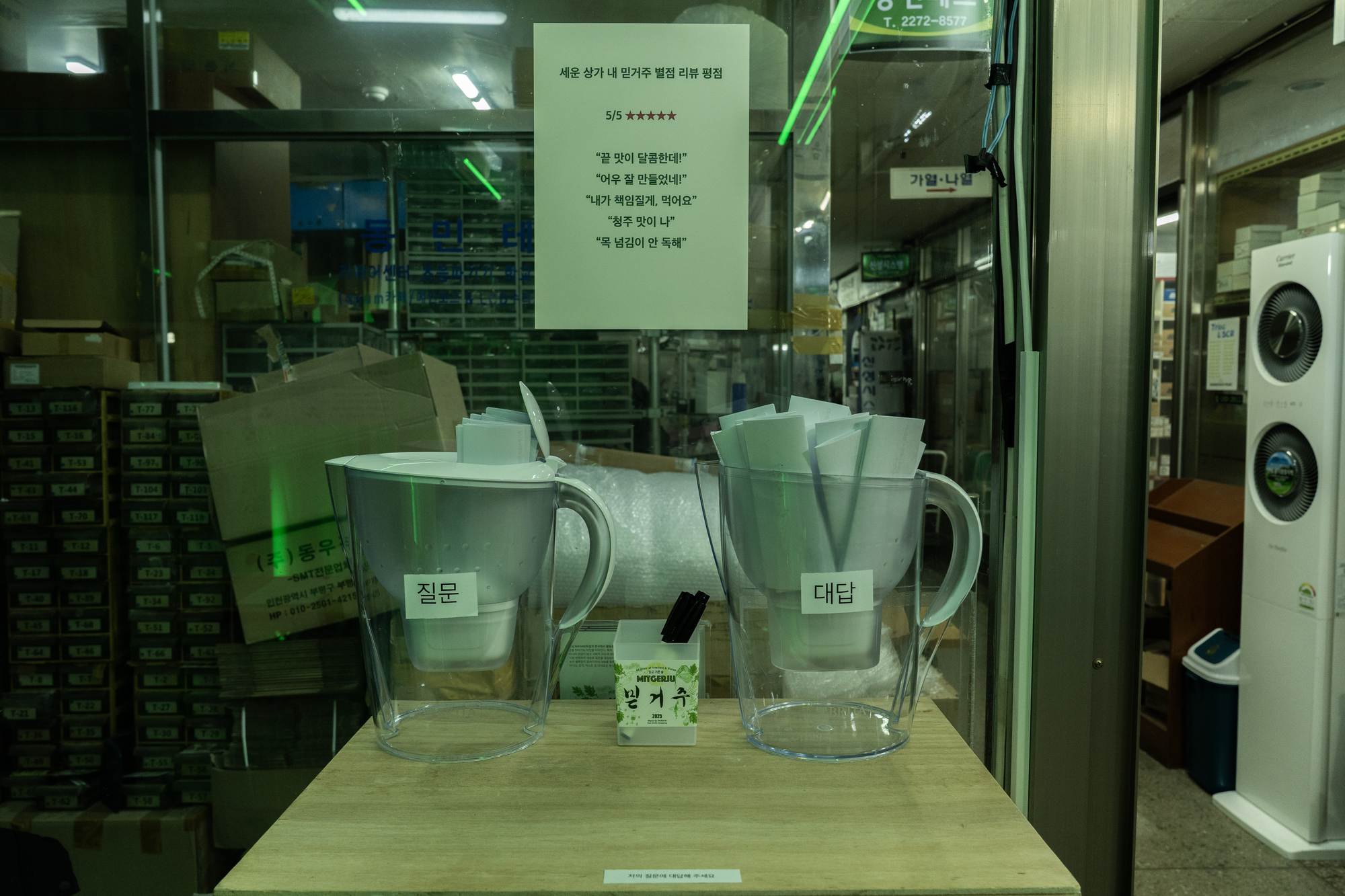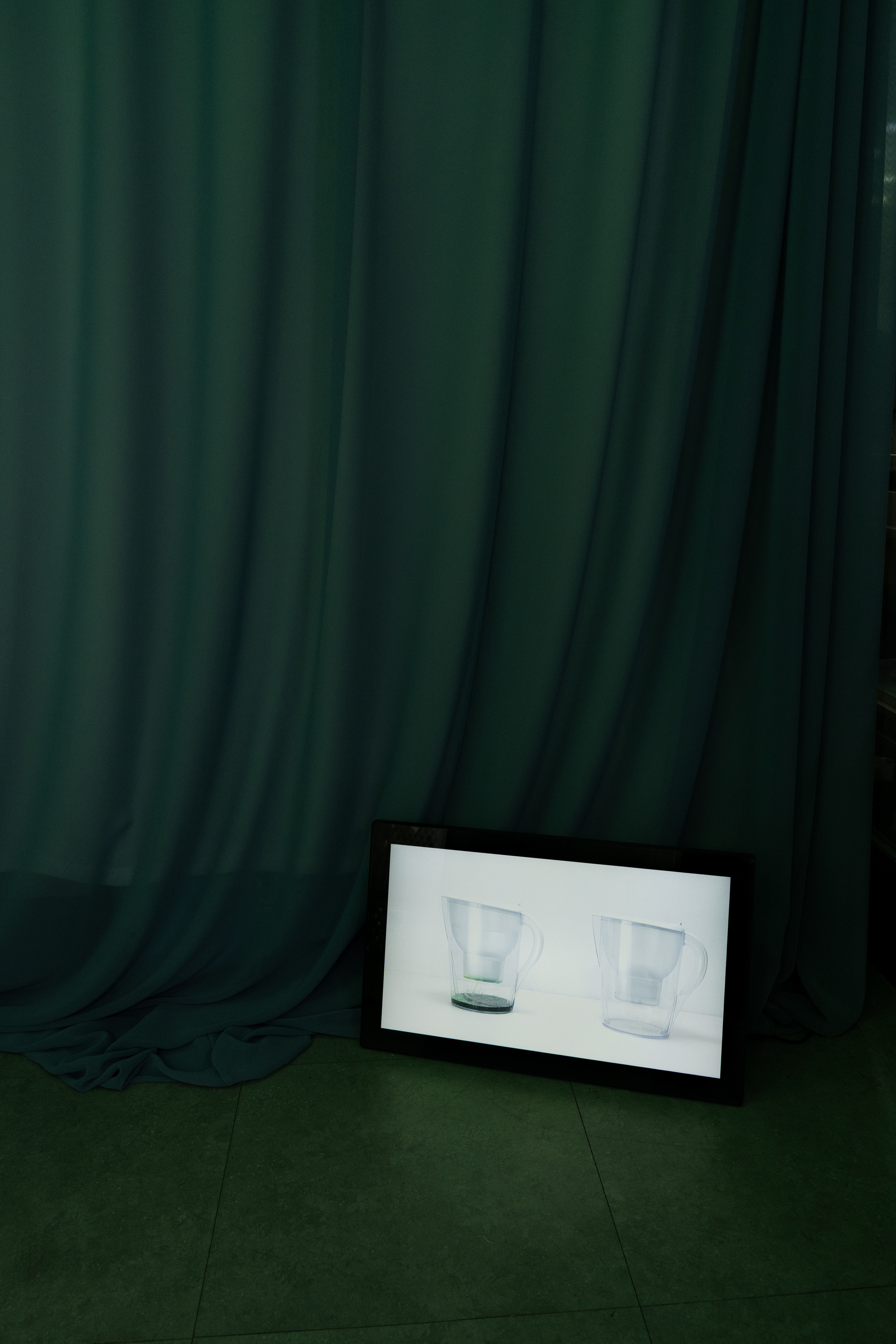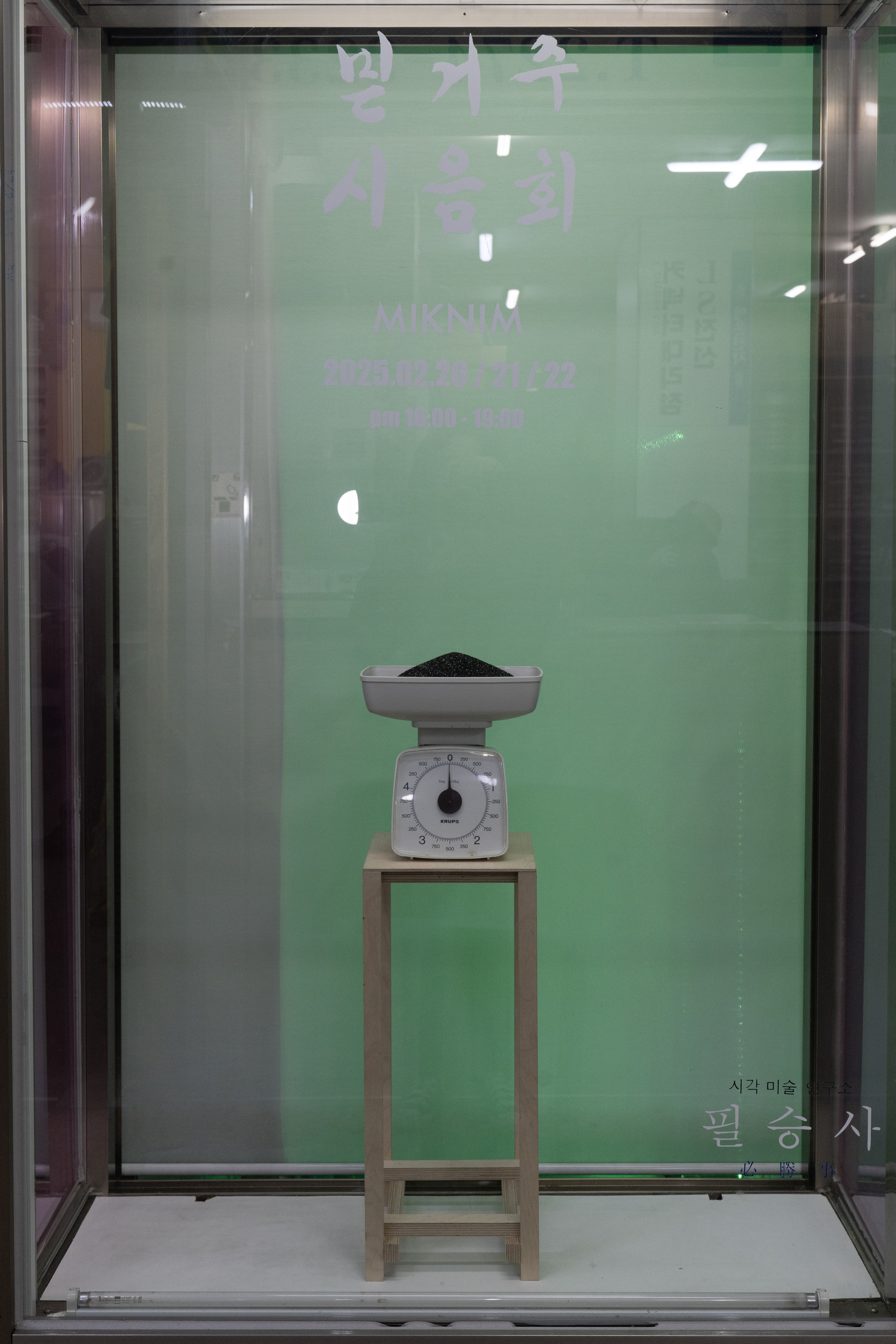<MITGERJU Tasting>_ A Test of Trust
︎DE
Pilseungsa
in Sewoon Sangga, Seoul, South Korea.
20.02 - 22.02.2025
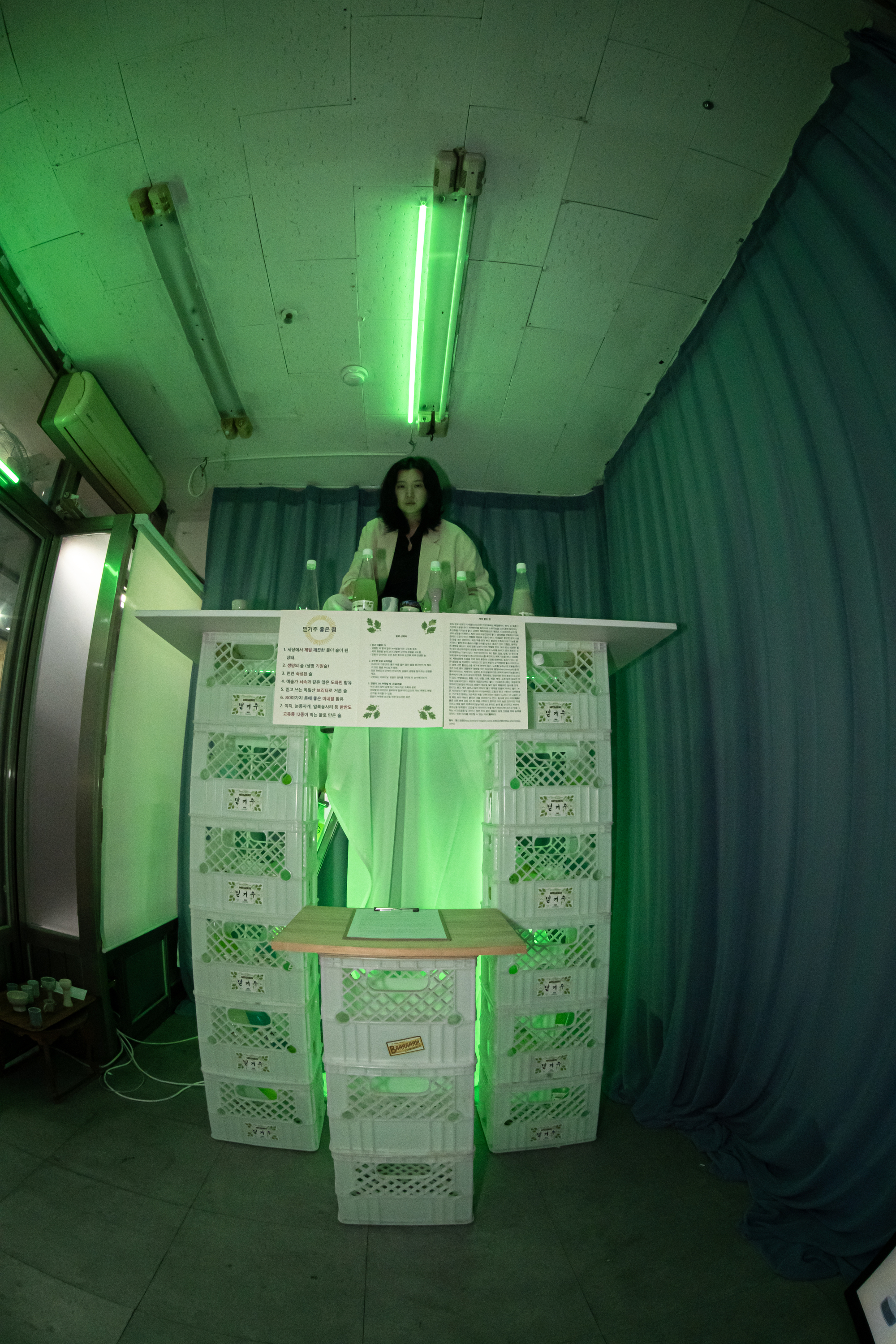
In this project, I produced my own alcoholic beverage: Makgeolli, a traditional Korean drink made by fermenting rice. I invited visitors to a tasting of this “MITGERJU.” However, before sampling the drink, participants were asked to sign a contract—humorous yet provocative—stating that consumption was at their own risk. This ironic, almost absurd agreement often sparked initial mistrust toward the beverage.
Visitors received the drink and had to decide for themselves whether to consume it. In the exhibition space, advertising posters exaggerated the trustworthiness of the drink in an over-the-top way. Meanwhile, I sat on an elevated platform, resembling a cult leader urging people to drink. This performative pressure often led visitors to critically question both the drink and the situation: Can this “MITGERJU” really be trusted?
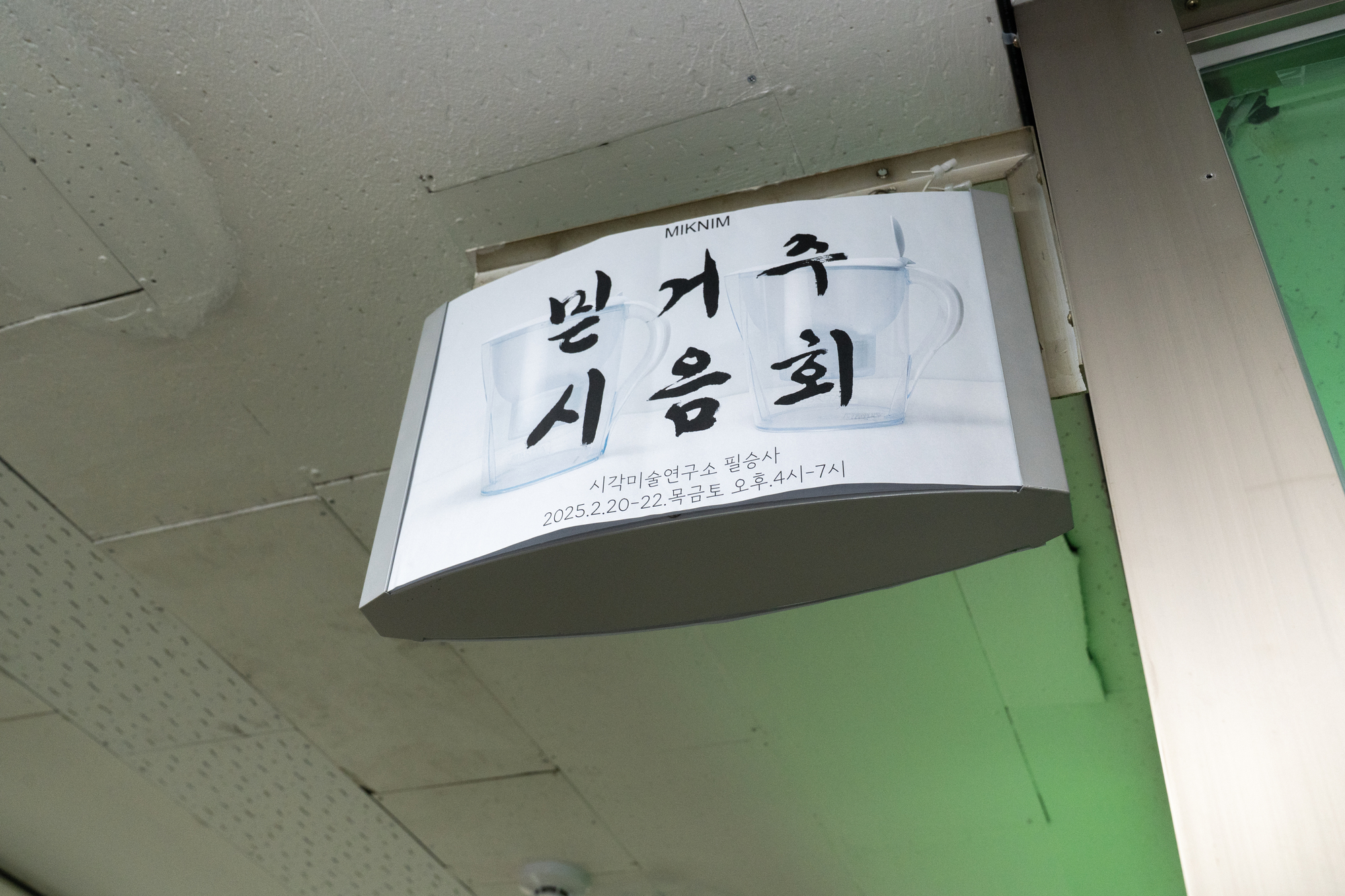
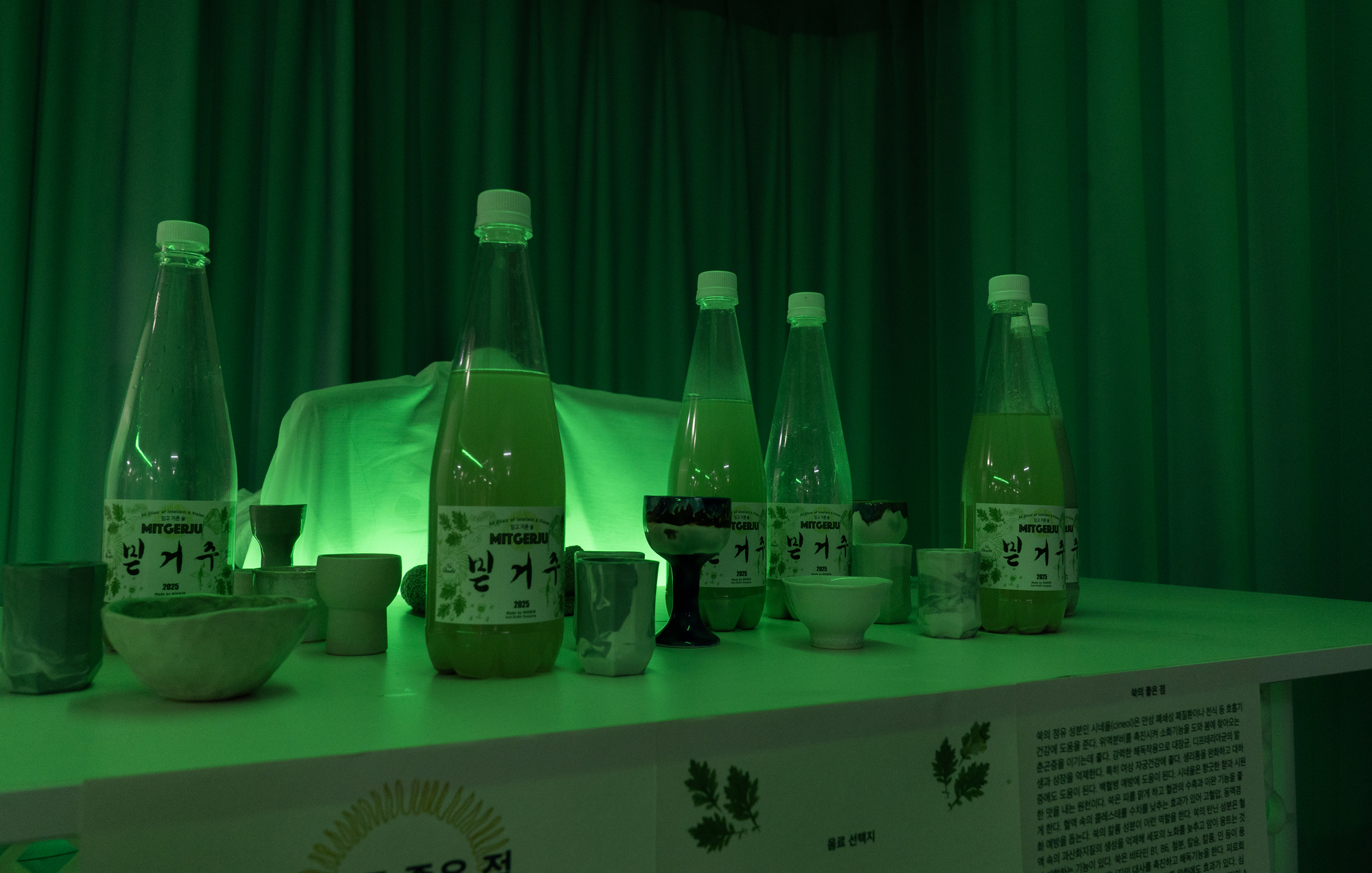
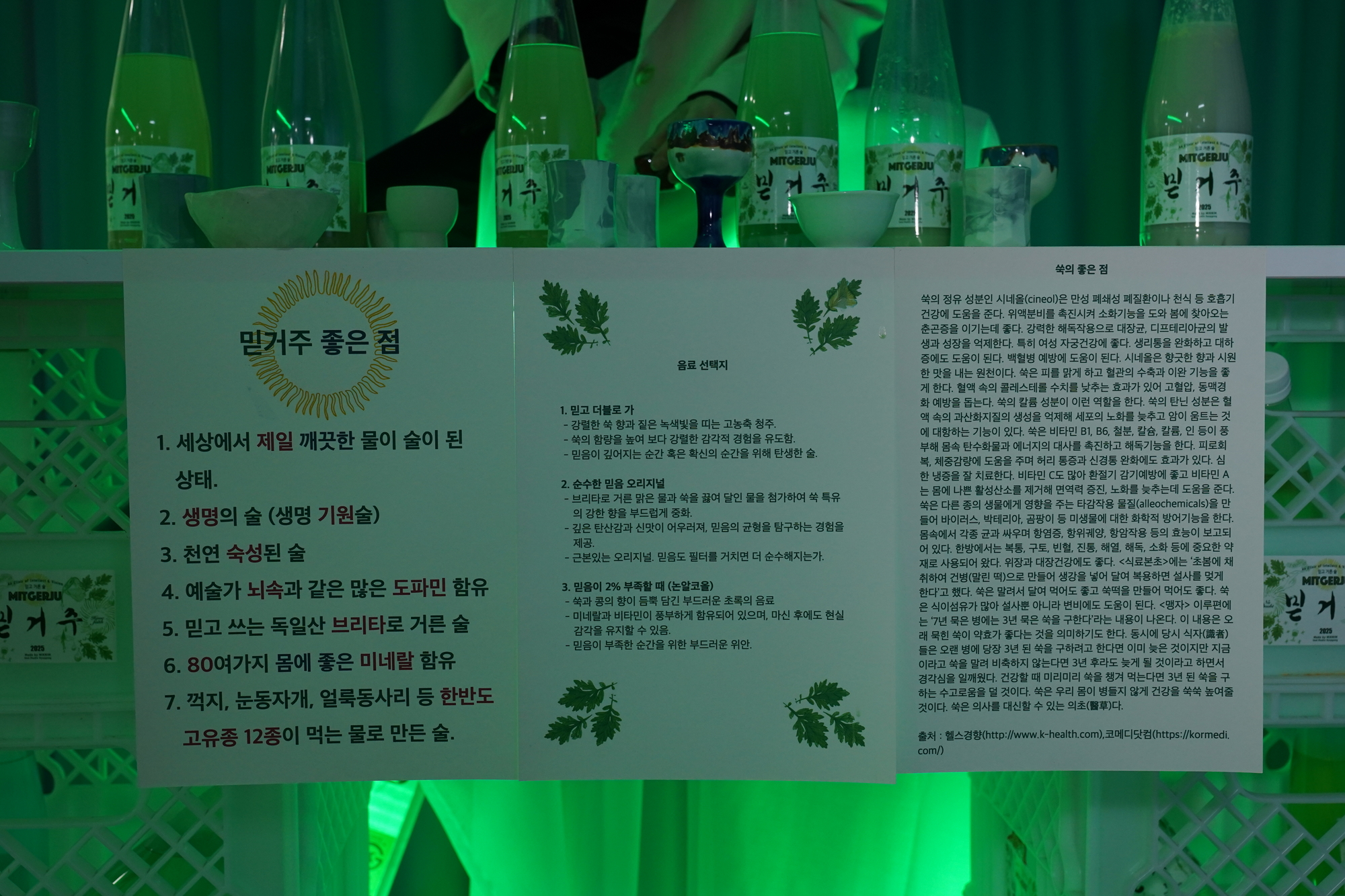
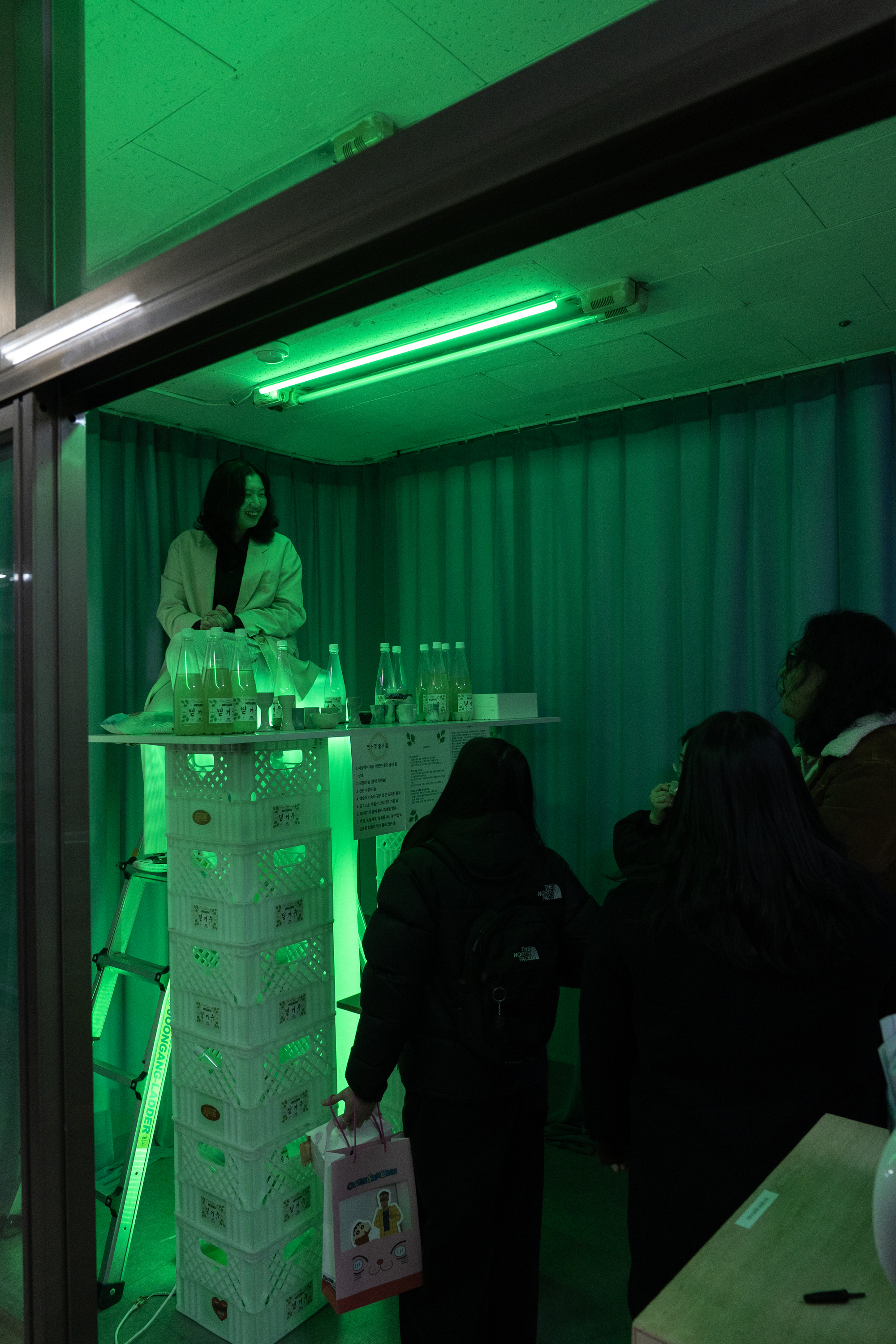
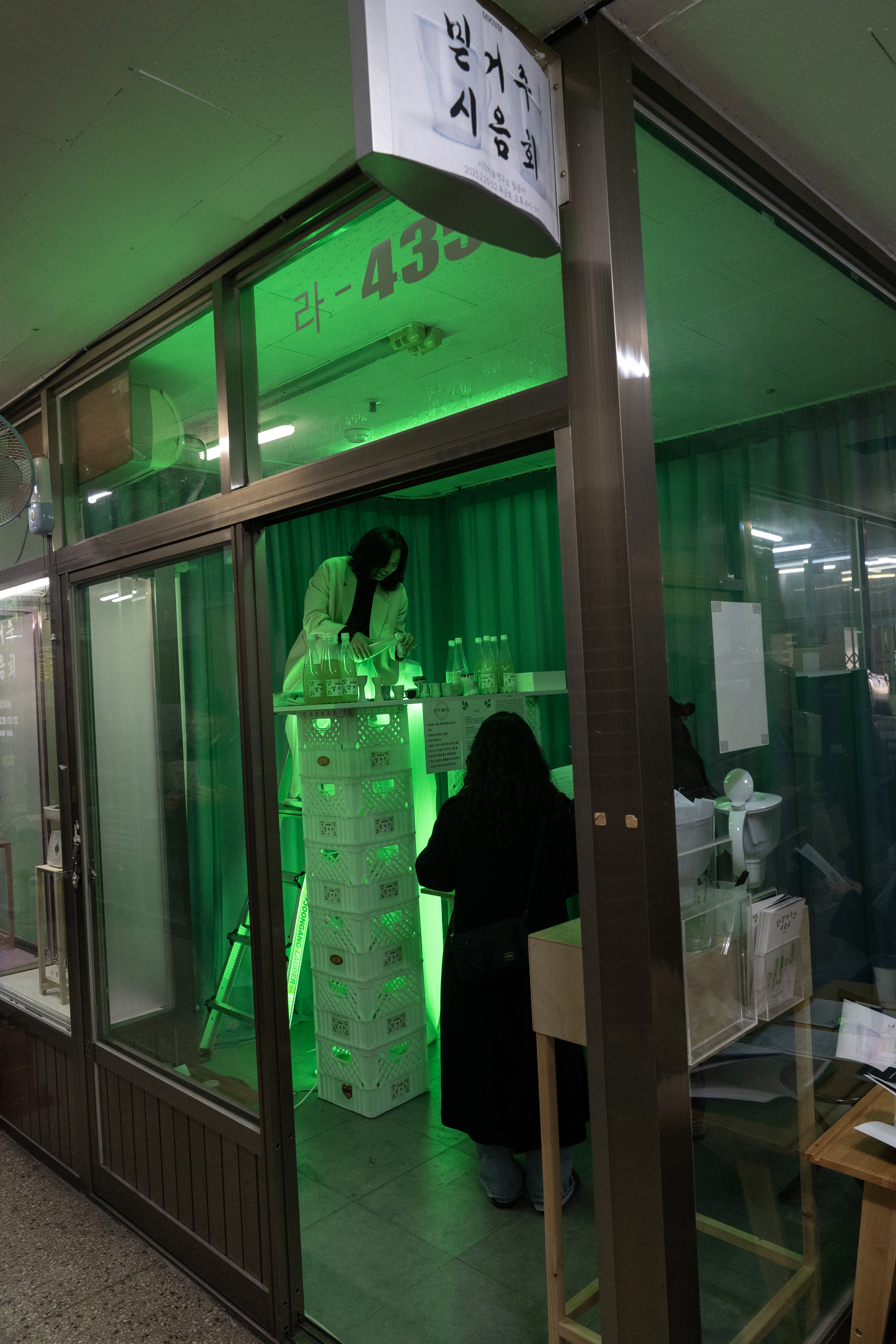
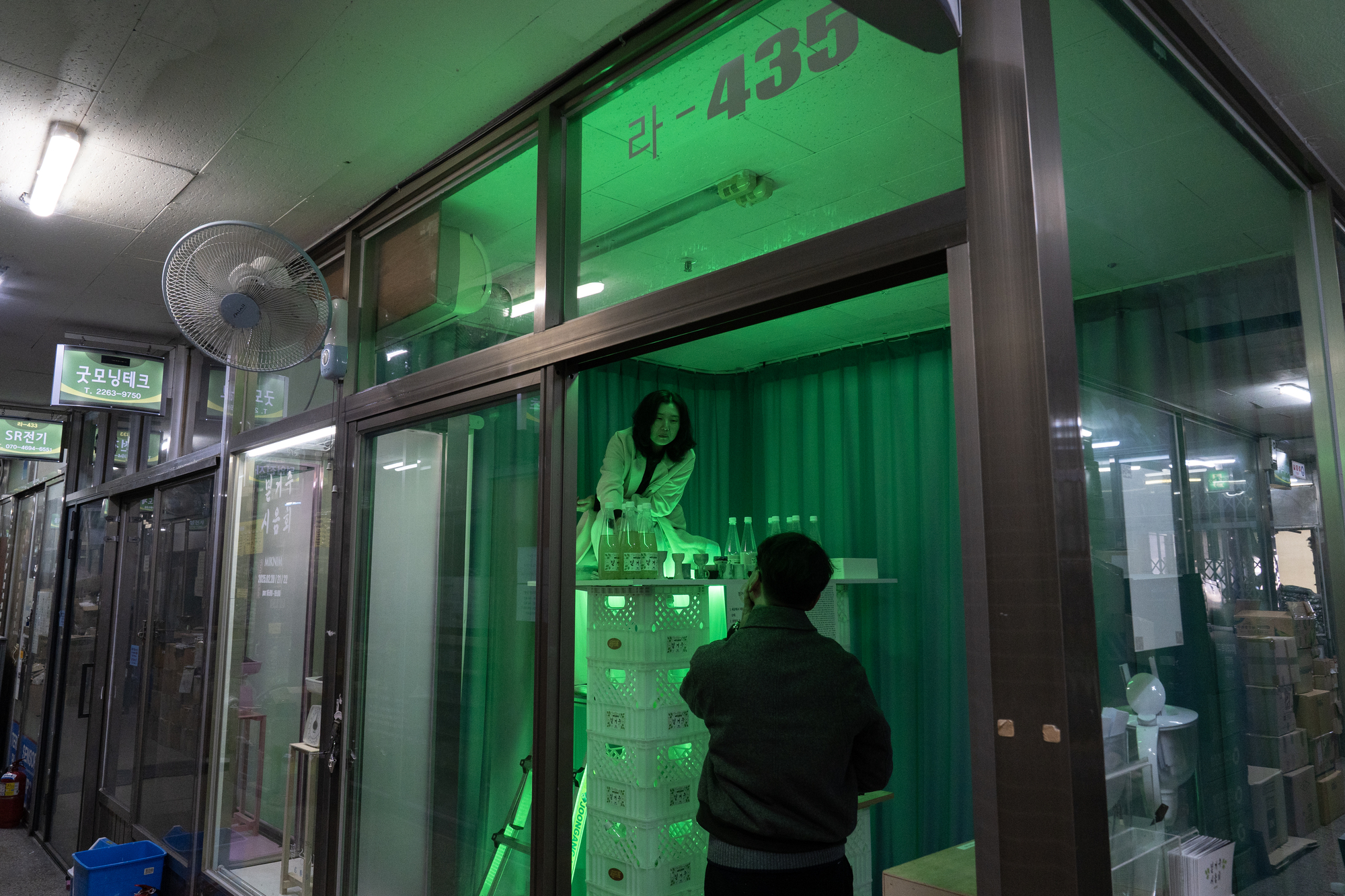
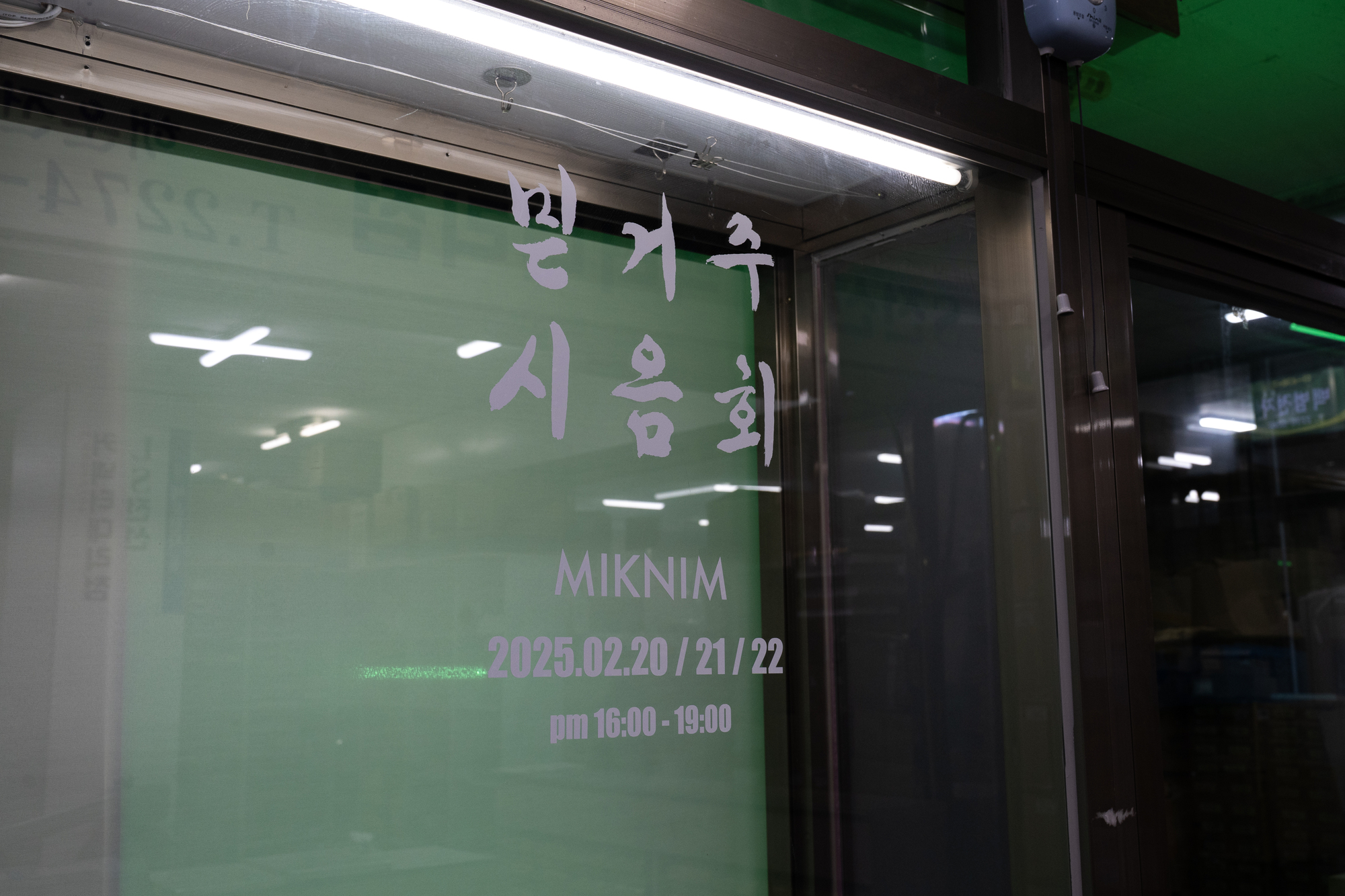
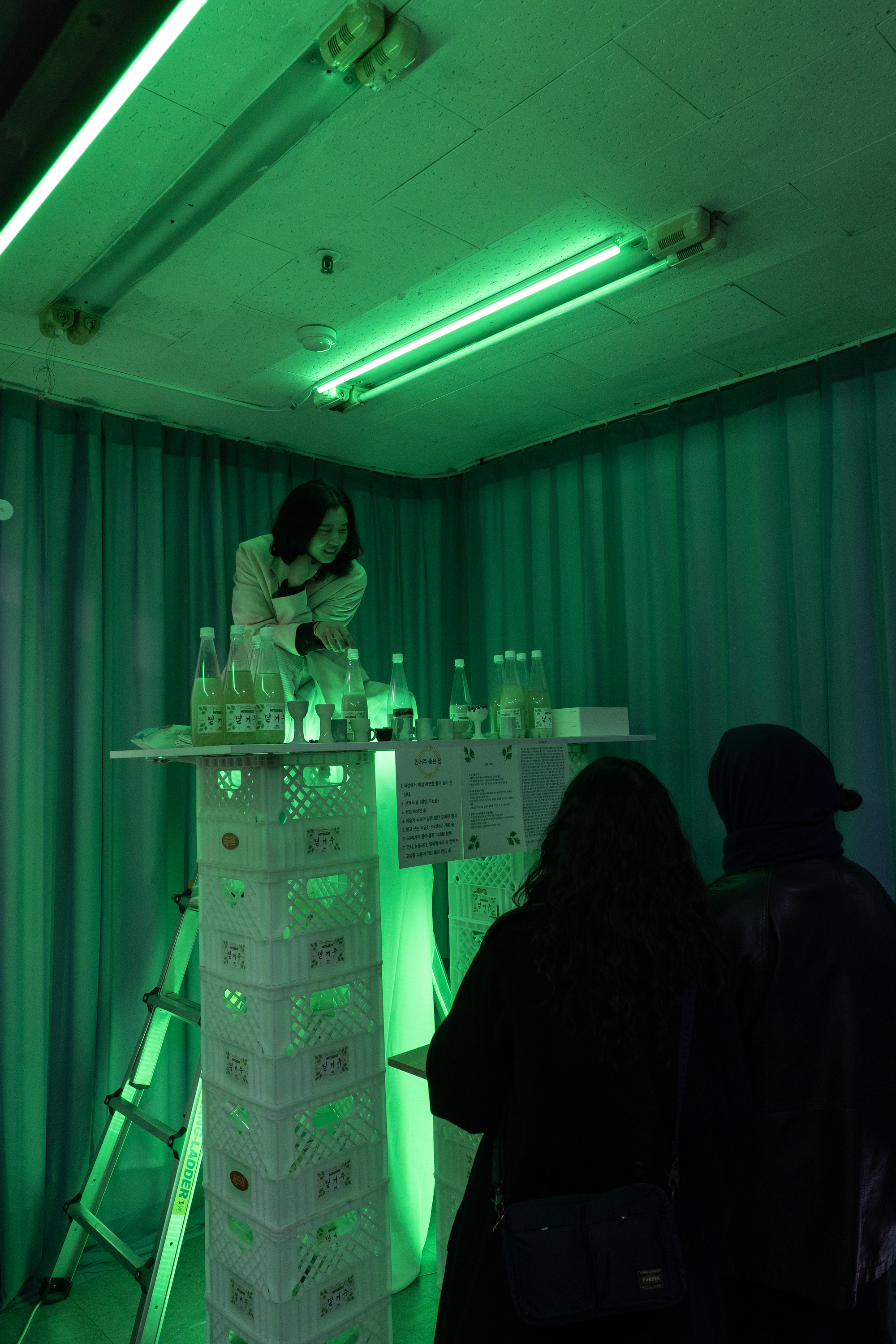
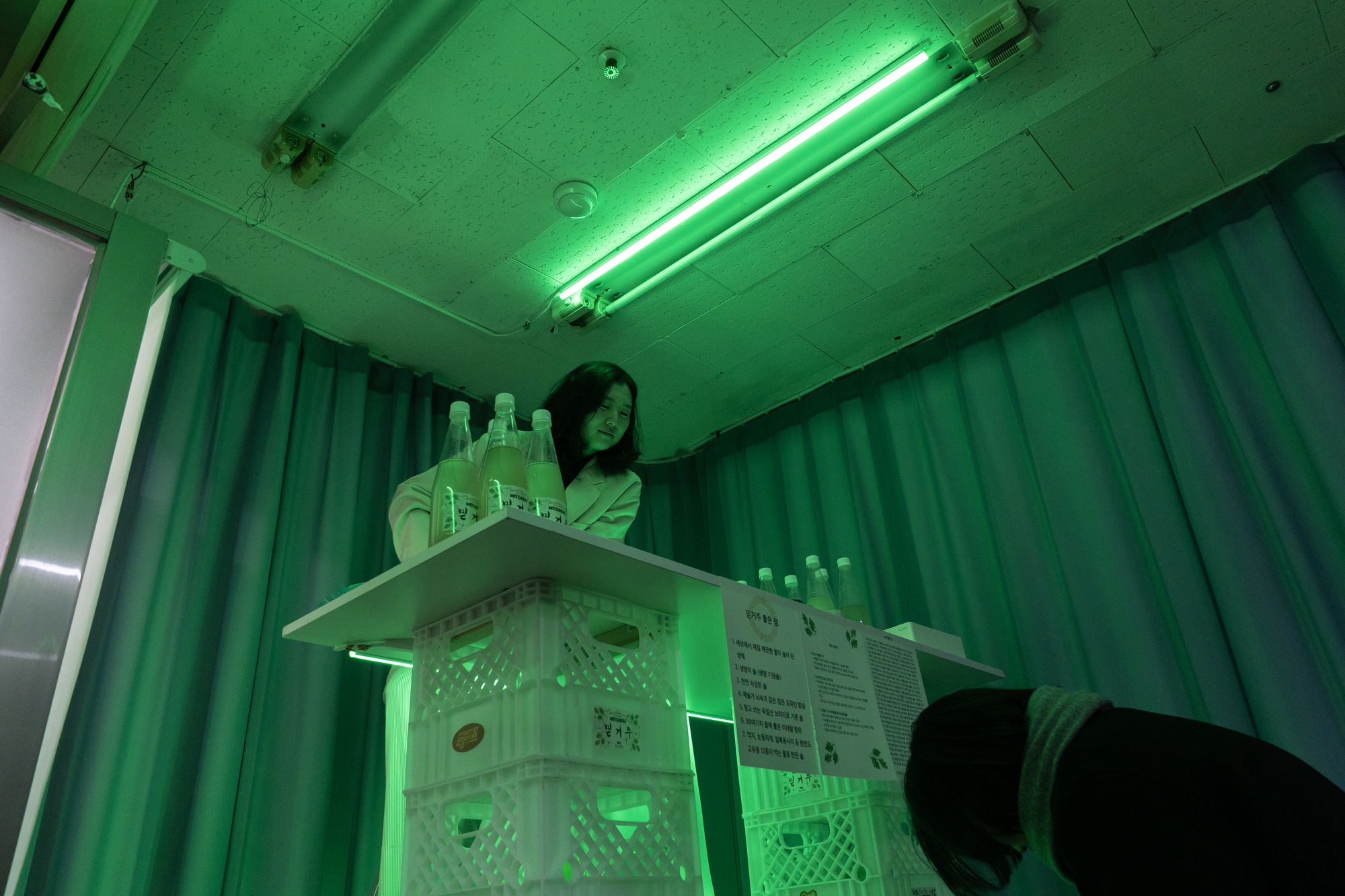
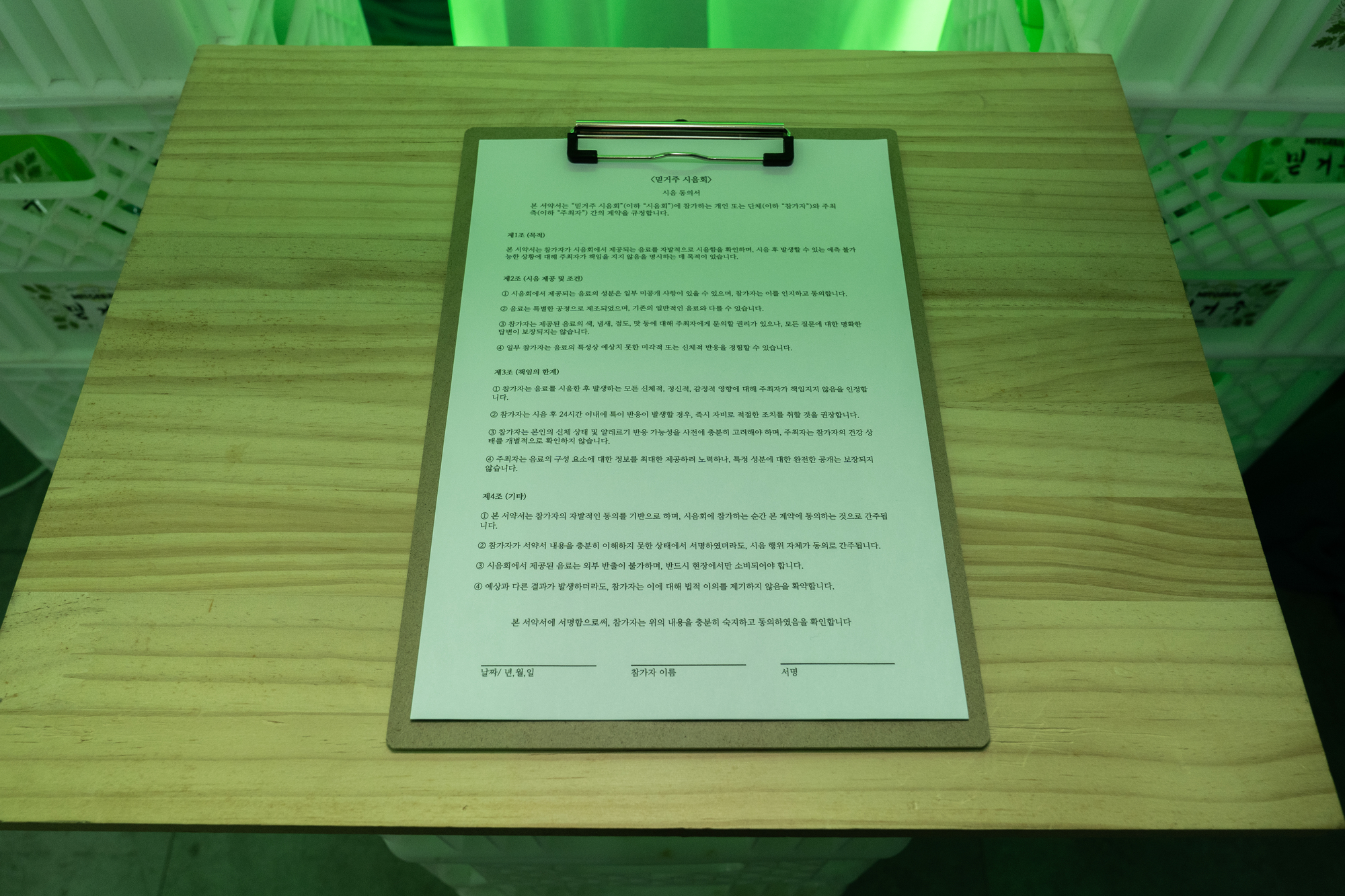
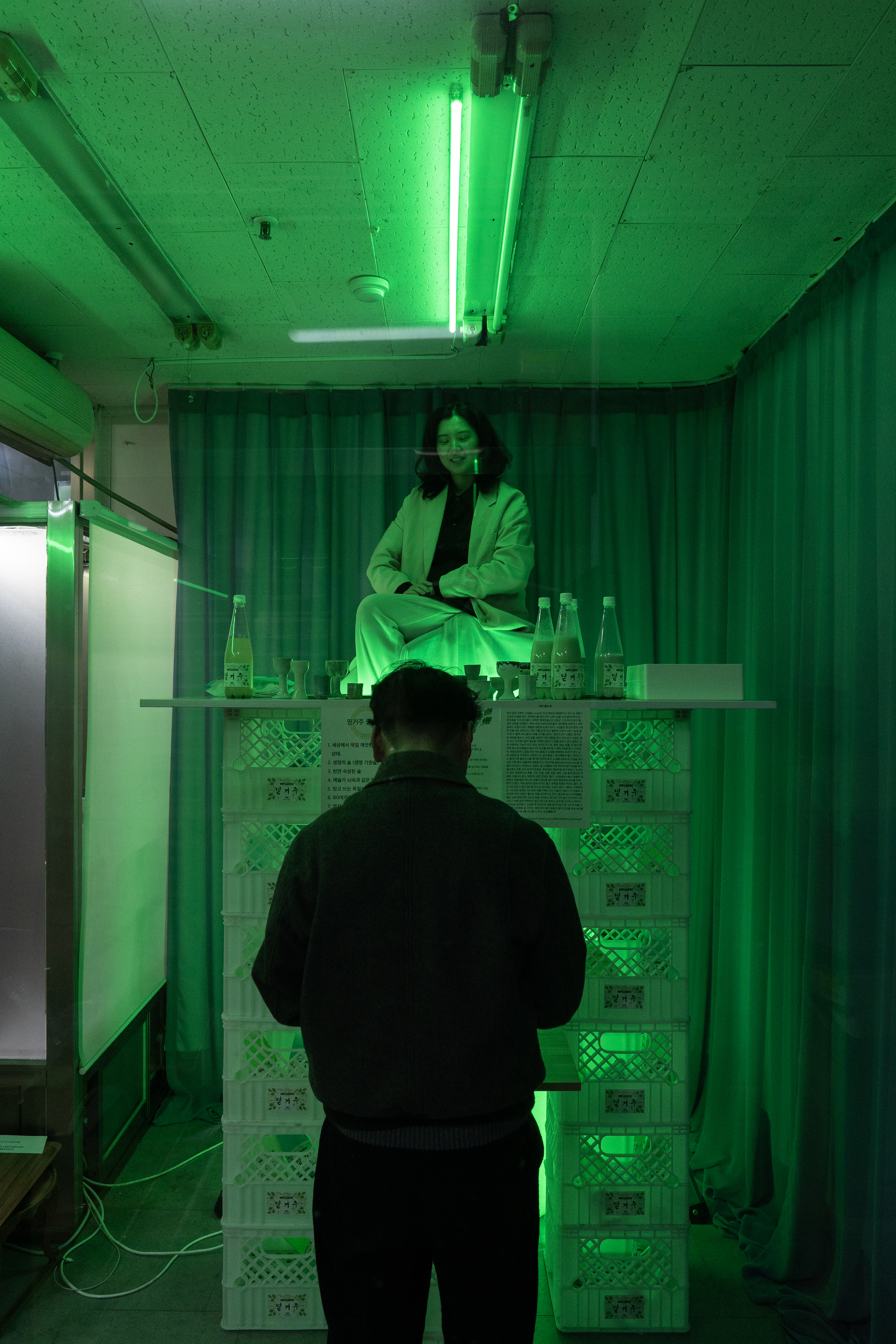
The exaggerated slogans parodied misleading advertising often found in Korean restaurants. My role as a pseudo-cult leader also reflected the political climate in South Korea, where superstition and fake news contribute to social division. The name MITGERJU plays on the Korean internet meme MITGER, which refers to how people exclude certain groups or information based on biases or social norms. It highlights that filtering is not only a technical process but also reinforces social exclusion and confirmation bias.
In earlier works, I altered the appearance of water by using colorants. Here, I took it a step further—transforming water into alcohol—as a metaphor for how beliefs can change once filtered. Through this participatory performance, I sought to explore whether people are willing to critically examine everyday norms, such as eating or drinking in a museum context. It was not about providing answers, but about reflecting together on how trust is formed and what shapes it.
After consuming the “MITGERJU,” participants were asked to rate it—mirroring the star rating systems we often rely on as trust indicators today. They also drew one of 22 questions from a box, each addressing themes of trust and doubt, and responded to it in a short questionnaire.
